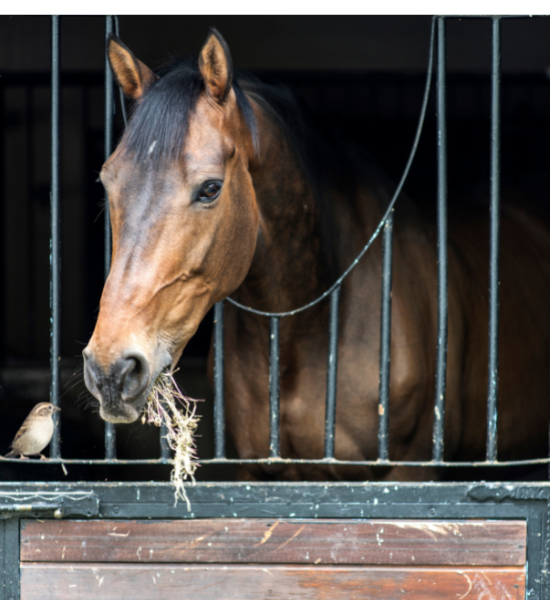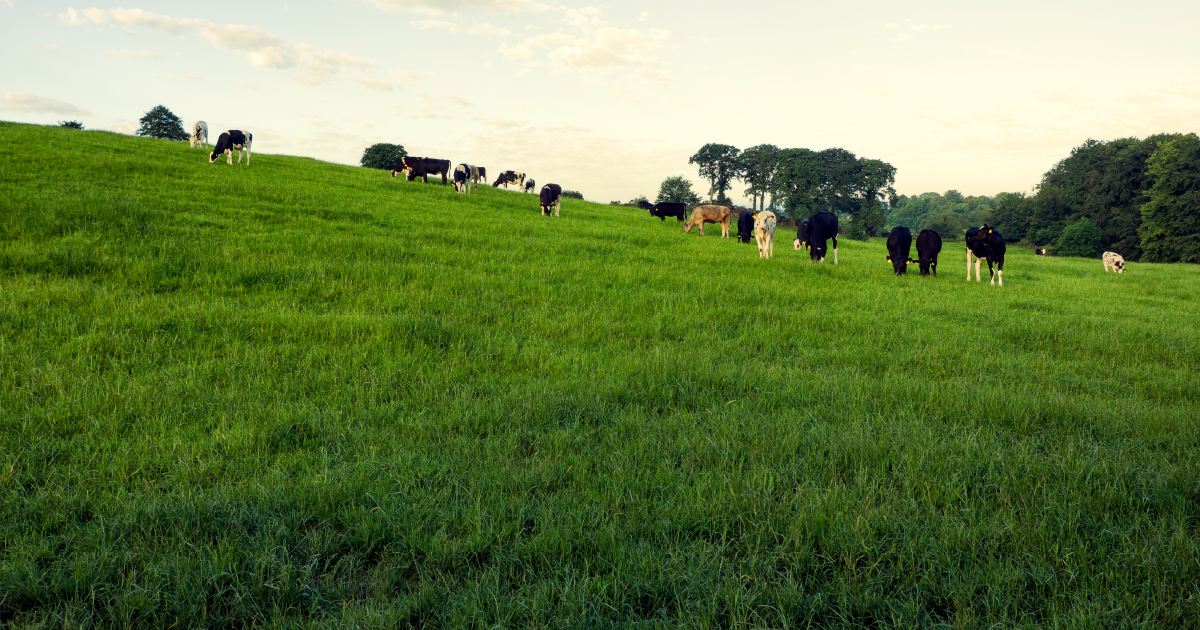What to feed a horse on box rest this winter
-

- 29 Nov 2022
- 0 Comments

Maintaining a regular routine is preferable for the health and wellbeing of your horse, but sometimes, an unavoidable circumstance may mean that the length of time spent in the stable has been lengthened. The thought of box-rest can be a stressful situation for both horse and owner. So, what can we do to ensure our horse is comfortable and intaking the correct diet for their sudden lifestyle change?
Support the normal
The transition from your horse’s normal daily routine to box-rest can cause disruption to bacterial populations in the gut and the normal intestinal movement. Ensuring an ad-lib forage is always available will provide a mimicked alternative to grazing when they are in the stable. The support of a variety of fibres such as alfalfa, hay, and haylage will encourage consumption and meet the entirety of your horse’s fibre requirements.
Providing sufficient forage can also reduce the risk of medical problems such as gastric ulcers or colic, and stable vices such as crib-biting or weaving; these are all factors caused by stress, reduced mobility and the incorrect intake of fibre while stabled for prolonged periods.
Top Tip: Supplementing a prebiotic or choosing a feed that contains prebiotics, can help the digestive system to stay healthy during box-rest.
Read More: 7 Tips for supporting digestive health this winter
Read More: Which is more suitable for your horse? Spillers Alfalfa-Pro Fibre vs Ulca Fibre


Energy and Calories
Did you know that because calories and energy are the same, feeding a high-energy diet can cause your horse to gain weight when in prolonged box-rest. The requirement for energy will be decreased when the activity levels of your horse are reduced, meaning their calorie intake will be significantly lower than when in regular work. If calorie intake remains the same, weight gain and the risk of Rhabdomyolysis (Tying-up) could be increased. However, for horses that gain weight easily, small-holed haynets such as the Shires Delux haylage net can slow down consumption and will make the forage last longer.
Top Tip- Dividing your horses concentrate feed into smaller meals through the day will promote a healthy hindgut function and can reduce boredom.
Reducing box-rest boredom
When we are stuck inside for a long time, we all know it can be boring, this is the same for our equine friends on box-rest. When a horse becomes bored in the stable, behaviours such as box-walking, weaving, and crib biting can occur if there is no form of entertainment available. Hanging vegetables like turnips or hiding low calorie treats in their haynet can aid the reduction of boredom. Alternatively, stable toys such as the Red Gorilla drip feed ball can be a form of entertainment, although, you should always check with your vet to make sure the toys will not do any harm to the horse’s injuries. To reduce any stress a stable companion and lots of grooming can also be a great non-food tool.
Water is key
Everybody needs water to stay healthy, but when on box-rest this can be a challenge for some equines. Ensuring a clean source of water is available at all times is always important, but particularly when the horse is stabled as the available water content from the dried forage will be significantly lower than that in grass. Some horses in this case may not fulfil the full amount of water needed to function. Providing a salt lick or a small amount of apple juice in your horse’s water bucket can encourage them to drink more. Make sure you also keep a close eye on how much your horse is drinking, swap any automatic water drinks to buckets such as the Red Gorilla Tubs to help with this process.










